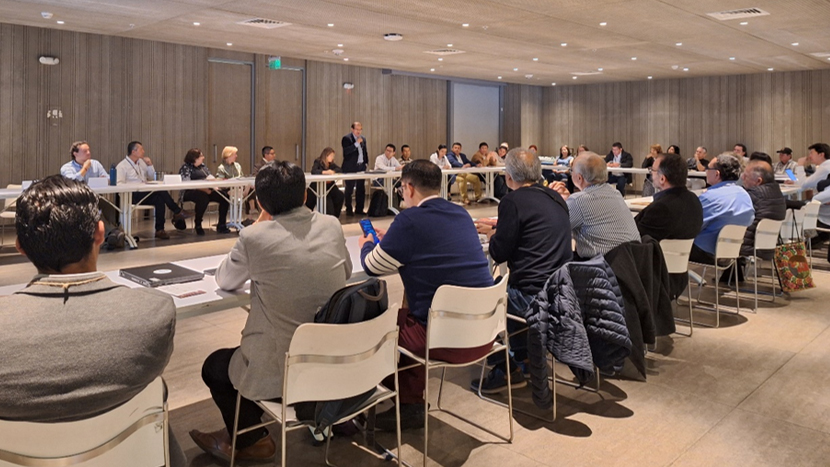This impact story was originally posted here.
On July 14, the Coalition for Sustainable Production, in the framework of the Cocoa, Forests and Diversity Agreement, in coordination with the Cocoa, Forests and Peace Initiative and Fedecacao from Colombia and ProAmazonia from Ecuador held a Regional Dialogue on Sustainable Amazonian Cocoa, within the framework the Global Community of Knowledge and Practice for a Sustainable Cocoa.
The aim was exchange advances and information such as deforestation-free certification from Ecuador, the promotion of agroforestry system in Colombia Amazon named Cacao para la Vida and Competitiveness Pact lead by Fedecacao.
As a result, the participants established the need to continue a dialogue in areas such as financial and non-financial incentives for smallholder producers to increase the compliance capacity, exchange information on polygons and baseline gathering, monitoring and traceability and how improve the national legal framework.
The German Development Cooperation, implemented by GIZ, Solidaridad, and Tropical Forest Alliance participated and provided support on the event.

From the European Union, we are aware that many producers are committed to guaranteeing legal, transparent, and deforestation-free value chains. We firmly believe that this new regulation can be a great opportunity for producers
Ilias A.Tsilekas, LLM Trade and Econlocomic Affairs Officer, Delegation of the European Union in Peru
The support of Ecuadorian government for smallholder producers is key to advance in deforestation-free agenda. Ecuador will continue to work in deforestation-free certification to ensure that Ecuadorian agro-producers will enable them to reach specialty markets
Wladimir Morales, Analyst of Primary Production and Good Practices Certification, Agrocalidad, Ecuador
The main challenge regarding to European regulations is the lack of polygons on the farms, especially in remote areas. This problem also involves a technological and budgetary challenge. The question is how manage the information of each property.
Oscar Dario Ramirez, Director of Technology Transfer, FEDECACAO, Colombia
In Peru, the deforestation-free agenda and European regulation imply consider that we have 900,000 hectares between coffee, cocoa, palm, and banana, which are about 350,000 producers. We need the support of the industry and the government to transit to climate-smart agriculture.
José Yturrios, National Director, Alianza Cacao Perú